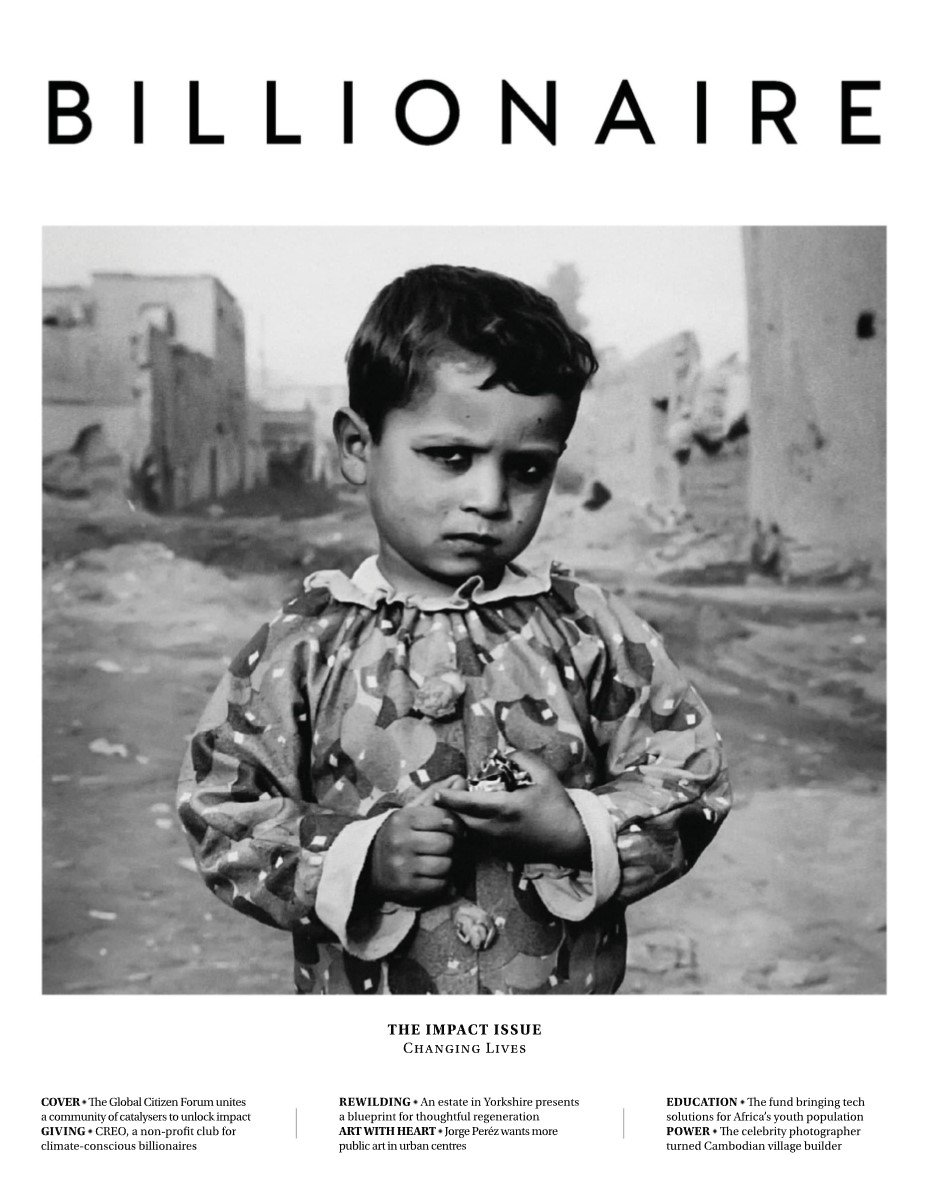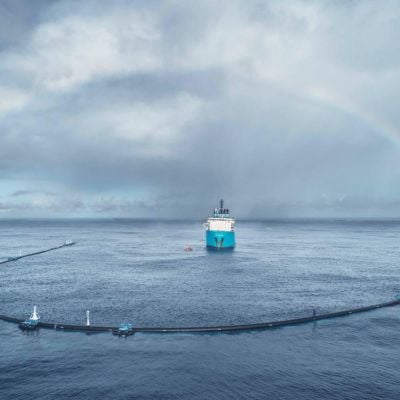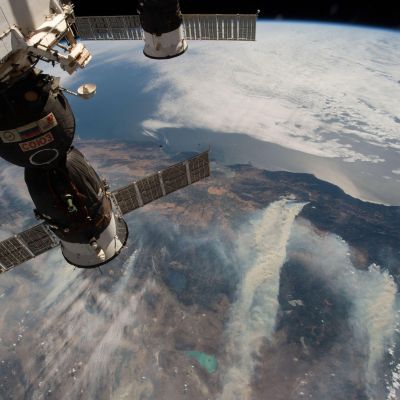Citizens of the World

The Global Citizen Forum achieves actions through bringing powerful concerned people together.
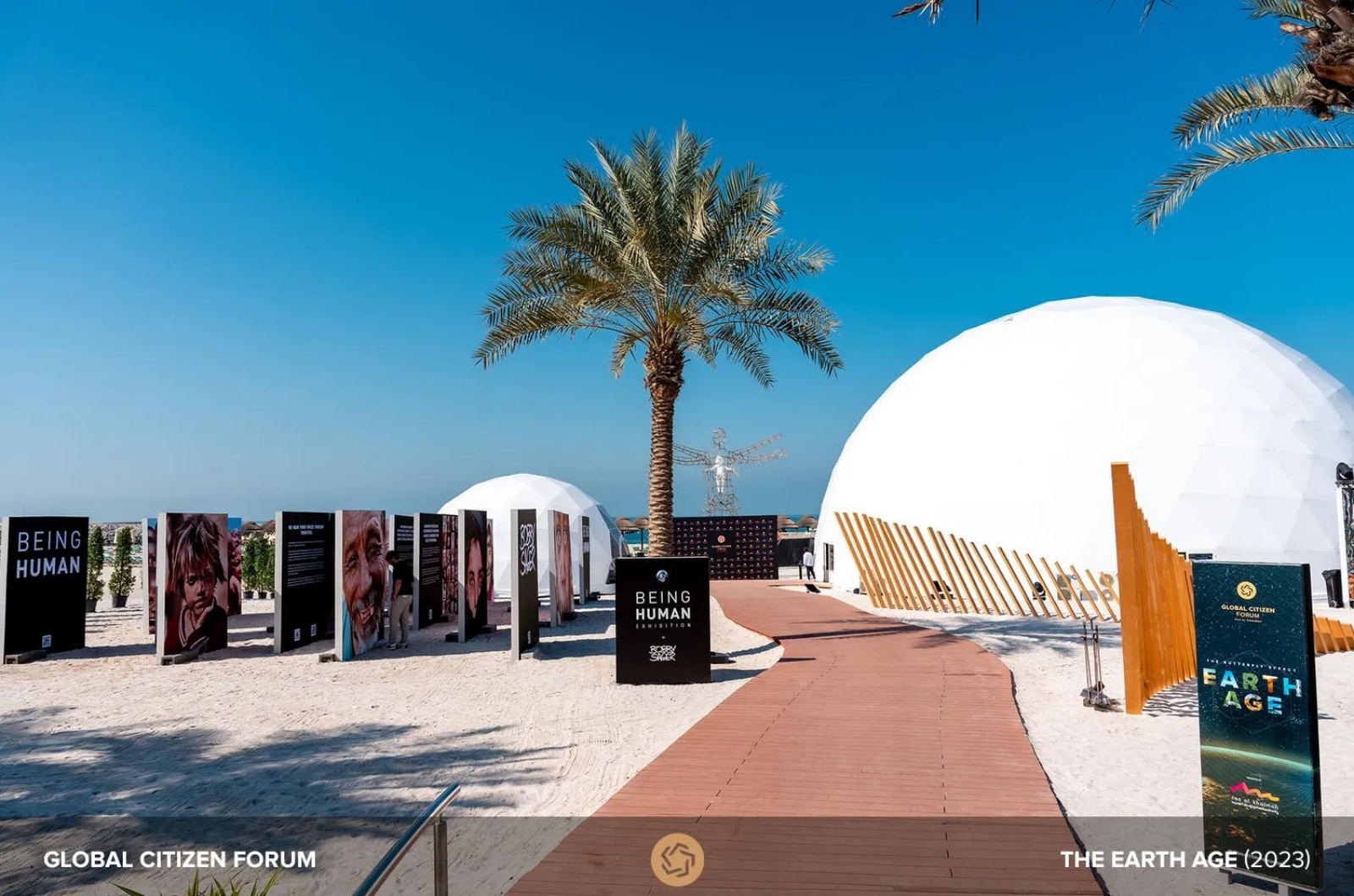
Some conferences are more memorable than others. At the annual Global Citizen Forum held in Ras Al-Khaimah, UAE, which took place alongside COP28 in Dubai, a rather unusual panel was held about the state of the world’s oceans.
It was unusual because it was the first ever panel to take place underwater, with the panellists speaking through microphones in their oxygen masks. They included climate scientist Dr Deborah Brosnan, PADI CEO and president Dr Drew Richardson and Global Citizen Forum (GCF) founder Armand Arton, who urged the need for cross-sector collaboration across tech, government, science, and entrepreneurs.
Later that day, attendees could hear from Syrian refugee-turned-Olympian Yusra Mardini about her experience crossing the ocean in a ramshackle, over-crowded boat, as well as her campaign to help other refugees. The venue? A rigid inflatable boat on the beach, like the one Mardini made her near-fatal voyage in. Guests perched on the sides or sat on the floor as Mardini spoke, as the waves lapped the fragile vessel.
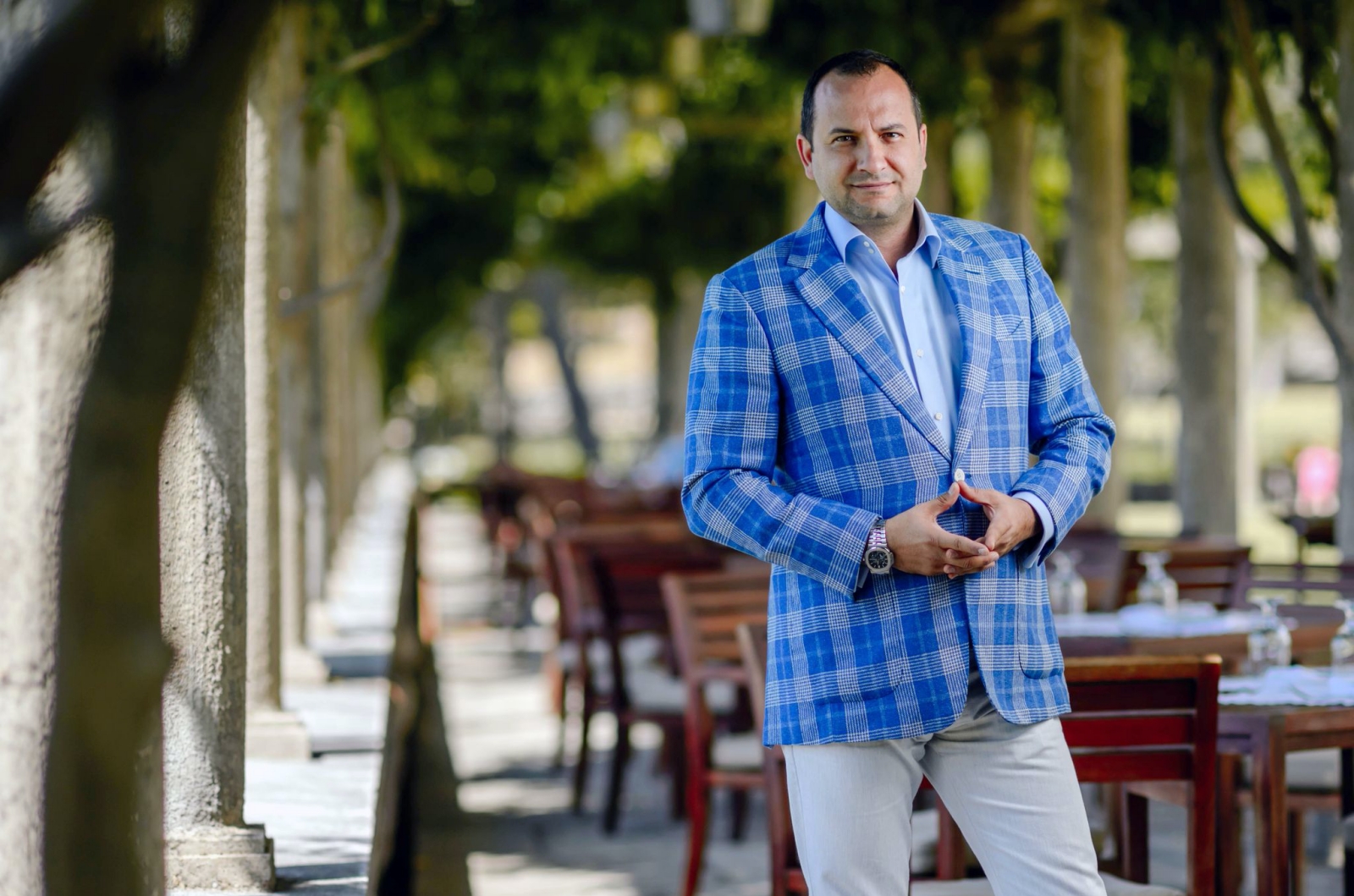
Framed against the azure waters, the white sand and the event’s futuristic white dome was a moving exhibition by photographer Bobby Sager, featuring the hyper-enlarged faces of men, women and children – including child soldiers, refugees, war victims - he had met as a philanthropist. Titled ‘Being Human’, it was an arresting tribute to the meaning behind the event – the plight of tomorrow’s generations.
Fostering creative solutions to climate change and humanitarian issues requires a creative approach to event planning, says Arton, who has run the non-profit GCF for 10 years now. “Putting 400 people in the room and lecturing them about climate change is not going to work now. To get people to want to come and give their time, money, and make useful connections, you need to create experiences.”
The GCF has a slew of achievements under its belt, not least its ability to raise around US$300-550,000 annually from its glitzy gala and auction alone, which gets distributed between several charities it supports, including refugee NGOs UNHCR, Choose Love, conservation-focused charities such as Save Soil and Ocean Shot and school rehabilitation initiative Crown Agents. It has also helped to fund small-island rebuilding efforts, including disaster efforts in Bermuda after the Hurricane in 2017.
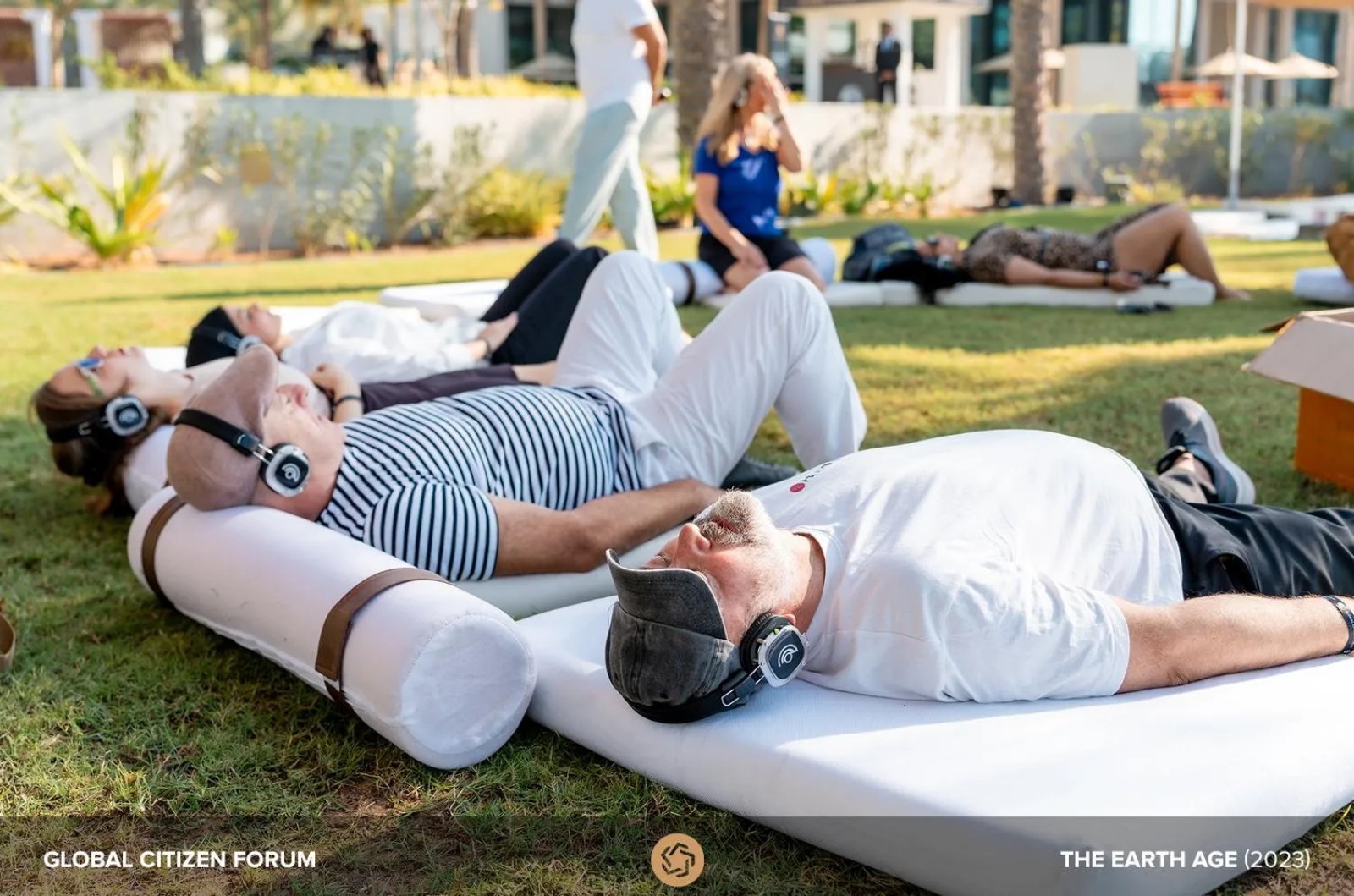
Previous annual summits have been held all over the world, with other locations including Dubai, Toronto, Monaco, Sveti Stefan, drawing guests from over 65 countries, with headline speakers including the late Kofi Annan, Wyclef Jean, Ricky Martin, Eva Longoria and countless prime ministers and presidents, CEOs, entrepreneurs, stars, artists, economists, philanthropists and billionaires.
Now billed as a “mini-Davos” by many in the industry, GCF was born out of Arton’s desire to unite some of the world most powerful and influential people to bring about lasting solutions to some of the challenges of our time.
“Each person, every action, from personal to corporate level decisions, can make a difference,” he says. Conversations with heads of state that could move the needle were taking place at the event, including with one of the biggest agricultural producers in India discussing sustainable farming products for the region, or a leading German technology company that produces alternative meat from mung beans.
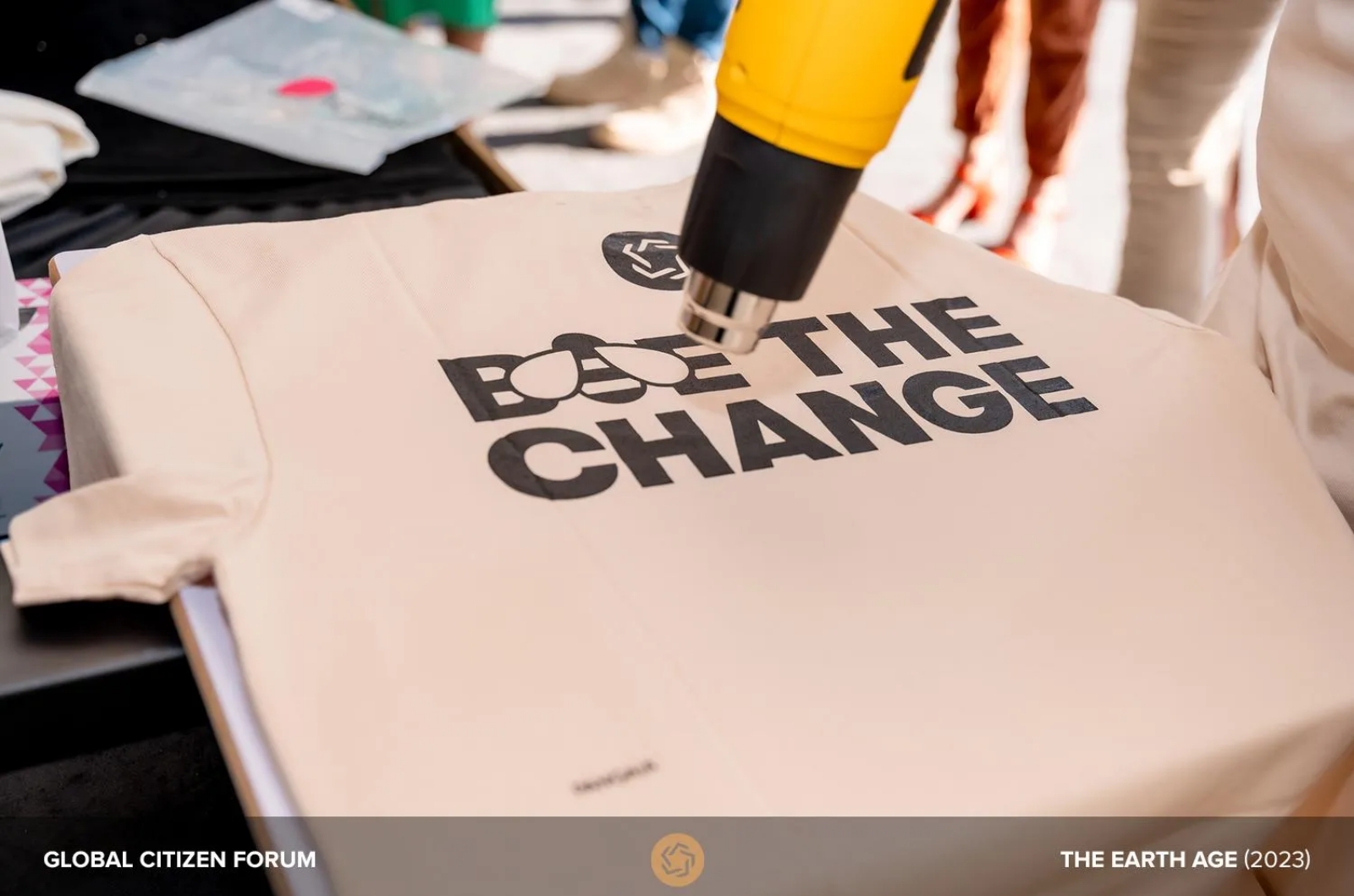
“If we don’t know how to fix the big problem, we should focus on fixing the smaller ones first,” he adds.
The forum ties into Arton’s day job, Arton Capital, a for-profit global citizenship financial firm based in Montreal, Canada, which he founded in 2006. The advisory service focuses on HNWIs looking at visa and citizenship acquisition schemes across the world, enabling people to enhance their global mobility while bringing investment into the countries they apply for visas in.
The concept of global citizenship is one that Arton is passionate about, as a Bulgarian-born of Armenian descent. “I was born with the wrong passport, and soon I realised it’s an unfair reality of life, it determines so much of it. I was traumatised by how many visas my parents had to apply for. When I finally got a Canadian passport, I realised what freedom really means.”
Through the forum he advocates for policy and social change through the lens of global citizenship, arguing that many of the systemic challenges we face are international by nature, such as the climate crisis, and thus require a cross-border response. He believes greater global mobility and investment in refugees and migrants will help the future. “Investing one euro in welcoming refugees can yield nearly two euros in economic benefit in five years,” he says, pointing out that Sergey Brin and Steve Jobs were all refugees. Indeed, statistics show that immigrants are more likely to foster novel ideas and start their own enterprises, as well as hire locals. More than 40 per cent of Fortune 500 companies were founded by immigrants or their children.
So, he came up with a solution. In 2015 at the GCF in Monaco, the idea of a Global Citizen Tax was introduced, a 3-5 per cent tax that should be paid by wealthy people relocating between countries, who are using instruments available for residency or citizenship by investment, such as the core business of Arton Capital.
“It’s only a tiny handful of people however it’s the wealthiest people in the world. We came up with the idea of tax at an EU level that could raise as much as €1 billion within the eight countries offering these programs. This initiative would fund the growing needs of migrants in Europe, such as providing schooling and apprenticeship programmes.”
The Global Citizen Tax was taken up as part of the recommendations at the European Parliament last year, and it is currently in review as how it can be implemented. “We are very proud of this, and it will be greatly needed. Whatever the displacement we are seeing today, this is nothing to what displacement will look like 25 years from now, as climate change and resulting conflict forces more people to leave their home. Those who are relocating from countries on a private jet or those leaving on a migrant boat both have the same aim, to provide a better future for their families.”
This article originally appeared in Billionaire's Impact Issue. To subscribe, click here

